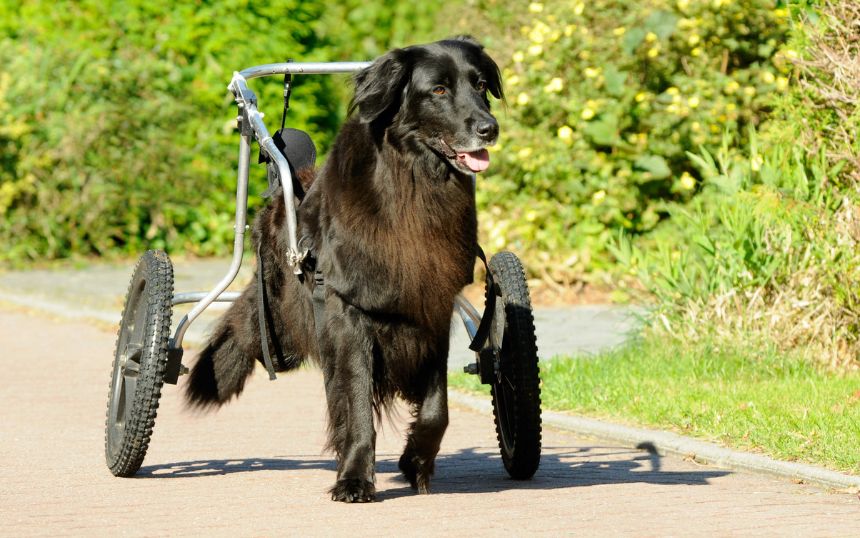ADOPTION TIPS: 9 QUESTIONS TO ASK WHEN ADOPTING A DOG

Adopting a dog is a wonderful experience, but you should be prepared for it. The key to a successful adoption is asking the right questions, and having an understanding of what dog ownership involves. Here are nine questions you should ask when adopting a dog.
- What is the dog's personality like?
Asking about a dog's personality is an important step when adopting a dog. It's not enough to just look at the dog, or take it on a walk and see how well it behaves. Sometimes, there are other aspects of their personalities that you might not be able to pick up on by just playing with them.
This is especially true for dogs that are being cared for in foster homes instead of a shelter environment. Shelter volunteers often don't know a dog very well after only having spent a week or two with them in the adoption area, and sometimes even longer periods of time in the kennel.
Why Does Personality Matter?
A dog's personality can affect its ability to fit in with any human family. While some dogs are naturally happy-go-lucky, others can be more reserved or shy. Some pets are playful and active while others prefer quiet cuddles and snuggles. If you have children in your home, finding a dog with a good temperament that matches up well with their energy level is an important consideration. A gentle and calm dog might not be the best match for a rowdy toddler—and likewise, a high-energy dog could be easily overwhelmed by more sensitive children.
- Is the dog house-trained? Crate-trained?
One of the most important things to consider when adopting a dog is whether or not he is house-trained, or if he has been trained to use a crate. There are many rescue organizations that don't have the resources to provide this type of training, so it's something you should ask about before you adopt.
When you bring a new dog into your home, it's important to establish some rules and boundaries right away. Having a routine in place helps ensure that your new dog will be successful in his transition into your family. You should have a designated time where he can go outside to relieve himself, and if he's not house-trained, you'll also want to make sure that he has access to an area where he can “go” indoors (such as a bathroom). If he's crate-trained, then you'll need to keep him confined in one room during the transition period so that he doesn't get distracted and forget what you're trying to teach him.
This is where asking if the dog has been potty-trained or crate-trained comes in handy. If they say yes, then great! You don't need to worry about training them yourself and can focus on getting them acclimated with their new home.
- Is the dog good with children? Other pets?
Adopting a dog is a huge commitment and it's important to have realistic expectations. When you are adopting a dog, you're not just bringing home an animal who will be a companion. You're bringing home an animal who will also become a member of your family. That's why it's so important to ask the rescue organization or shelter if the dog is good with children or with other pets before you adopt.
There are many reasons why you should make sure that the dog you're adopting gets along with others before you bring him home. First and foremost, you want to make sure that your new pet gets along with his family members because if he doesn't, he may be unhappy in his new home environment. If the dog is constantly battling with your other pets or your children, then there's a chance that he may not settle into his new home as well as he could have.
Second, it's important that any dogs in your household get along because safety is definitely a concern. While many dogs get along fine together, there are times when fights do break out between two or more animals and this can become very dangerous for everyone involved, including children and even adults who might be attempting to break up the fight.
- Does the animal have any behavioral issues?
When you ask to see a dog's behavior history, you're trying to protect yourself and the dog. If the rescue group doesn't have any information, it doesn't mean the dog has “issues”—but it does mean that you have to be prepared for anything, so you should be honest about your experience level with dogs. An experienced owner might be fine with a more challenging dog. A less experienced one might not. It's important for both parties to know exactly what they're getting into—if one is willing but the other isn't, then it's not fair for either of them. And if the rescue can give you information about a dog's behavior, that's helpful too—it will let you know what to expect and how to set expectations with your vet and trainer. But if they don't have any information, it doesn't mean they don't want to help—it just means that they're over their heads in terms of their own resources to make an informed statement about something as subjective as behavior (and perhaps even health).
- How much exercise does this breed need?
The breed of a dog is an important factor to consider when adopting one. Different breeds possess different characteristics, and the dogs' strength, size, and exercise requirements are very important to know before bringing your new pet home. For example, you wouldn't want to adopt a tiny poodle if you live in a small apartment. Or if you have time for only a quick walk around the block each day, maybe a husky or German shepherd isn't the best idea. Asking about the amount of exercise that's needed for a certain breed is helpful because it will help you choose the right one for your lifestyle. Of course, each individual dog is unique and could have different needs from other dogs of the same breed. But knowing what kind of energy most dogs in that breed typically have will give you an idea of what to expect and whether or not they'll fit into your lifestyle. If you're thinking about getting a pit bull but don't have time for long walks each day, ask how much exercise they need before making the decision to adopt one.
- How much grooming will this breed require?
When you're thinking about getting a dog, it's important to think about the grooming needs of that particular breed. Some dogs need very little maintenance, but many need more attention. If you plan to board your dog, groomers and boarding facilities will want to know what kind of grooming is needed for your dog. In some cases, it might be easier for them to provide the service themselves than to clean up the mess. If you're planning on getting a puppy, it's important to know how much grooming is needed so you can train him early on. If you're adopting from a shelter, it's important to ask how much grooming is needed so that you can be prepared for any extra costs or time commitment you may incur with your new pet. If you get an adult dog and don't know how much grooming is needed, you may find yourself in a situation where the dog doesn't respond well to being groomed and becomes aggressive or even bites someone while they're trying to trim its nails or brush its coat. That could lead to serious injury or death—besides being traumatizing for everyone involved! To avoid these situations altogether, simply ask the amount of grooming needed before bringing home your furry friend!
- How big will this breed grow to be?
There are a lot of factors to consider when adopting a dog, from breed to temperament. But one of the most overlooked—and perhaps most important—questions that you should ask yourself is how big will this breed grow to be. You see, if you adopt a full-grown dog and have no idea how big he'll get, you could end up in an uncomfortable situation (for both you and your pup) when he outgrows your space or needs more room than your apartment provides. No one wants to have to give up their beloved pet because they can't provide the space he needs. And while it's difficult enough to find the right home for adult dogs, it gets even harder with large breeds because so many people want “cute” puppies rather than full-grown dogs.
- What medical issues should I be aware of with this breed?
Before you adopt a dog, it is of the utmost importance to ask about the medical issues the dog has. This way, you can be prepared and know what to expect in the future. You will be able to find out if there are any hereditary diseases that your new dog might be prone to and whether or not you're ready to take care of a pet who might have medical issues. You will also be able to determine whether or not you have enough money saved up for expensive treatments and surgeries that might be needed in the future. Knowing all of this ahead of time will help you prepare yourself mentally and financially for any possible medical problems your dog may come across in his lifetime. It's important that we understand how our pets live with these conditions so we can better care for them when they do get sick. And while it's true that many diseases can't be cured, there are still steps we can take as owners to give them the best quality of life possible!
- Does the dog have any known allergies
If you think a dog has allergies, it's important to ask if the dog is allergic to any food items. Dogs with allergies can develop rashes, itchiness, and other skin problems. If you are adopting a dog that is allergic to food, then you will want to make sure that your new dog doesn't eat any of the foods that cause allergy symptoms in the future.
When you are adopting a dog, you should ask if the dog is allergic to anything. The most common allergens are fleas and dust mites, but dogs can also have other pet allergies such as pollen or even other animals. You should ask about any known allergies and be prepared for what might happen if the dog does have an allergy. For example, if your new pet is allergic to fleas, you might need to bring along some flea medication when you go out for walks.
Dogs that have allergies often have a reaction when they touch something that contains an allergen or when they breathe in air with an allergen present in it. When this happens, the body releases histamines which cause redness, swelling and itching as well as other symptoms like runny nose or eyes.
Adopting a dog can be an exciting, but stressful, time. If you've decided to become a dog owner but are still on the fence, take a look at these 10 questions to ask yourself before taking home a dog. Once you've considered your answers to these questions and more, you should feel confident in your decision to welcome a new furry friend into your home. And remember, if you ever have any doubts, never hesitate to talk things over with your veterinarian or animal expert for guidance. They can help you make a well-informed decision about whether or not to proceed with adopting an animal from the shelter.
For more helpful and informative insights, visit here.




